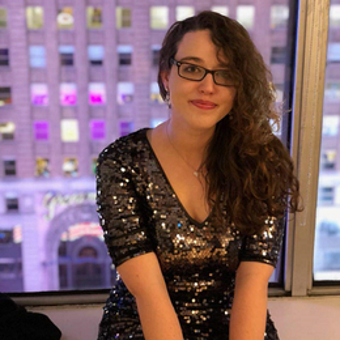Former Clinton adviser reacts to anti-Israel protests swarming DNC in Chicago
Pollster Doug Schoen joins 'The Faulkner Focus' to discuss anti-Israel protests at the DNC and a report alleging Biden resents other Democrats for prompting an end to his 2024 bid.
Critics say a wave of new rules limiting anti-Israel protests on college campuses impinge upon free speech. But a Cornell Law professor told Fox News Digital that many of these new policies are just explicitly stating already existing policies and protect Jewish and Israeli students' rights to safety on campus.
The summer break provided a respite from the protests against the Israel-Hamas war that swept colleges nationwide. As students prepare to return to campus this fall, higher education officials have developed strategies in an attempt to balance the rights of protesting students with other students' safety and their ability to get to the classes they paid for.
"Schools need to reach a balance between the right of students to an education and the rights of other students to protest," William Jacobson, Cornell Law professor and founder of equalprotect.org, told Fox News Digital.
CORNELL PRESIDENT ANNOUNCES RETIREMENT AS ANTI-ISRAEL PROTESTS SWEEP COLLEGE CAMPUSES NATIONWIDE
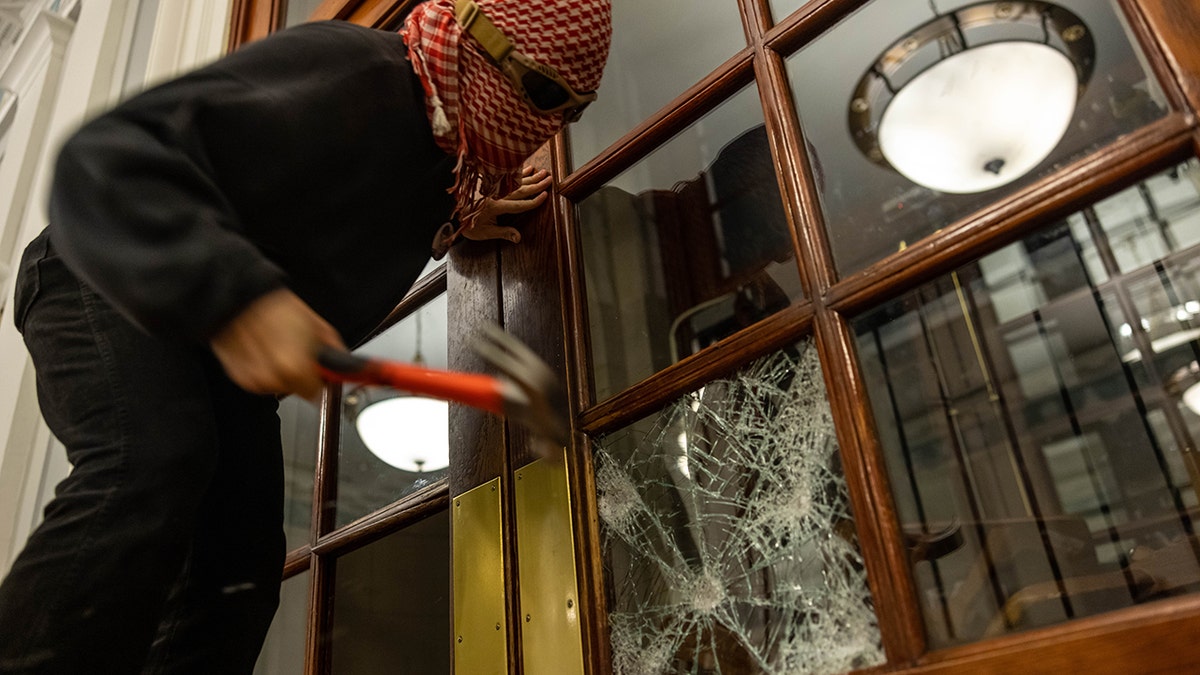
Demonstrators supporting Palestinians in Gaza barricade themselves inside Hamilton Hall, an academic building at Columbia University, on April 30, 2024, in New York City. (Alex Kent/Getty Images)
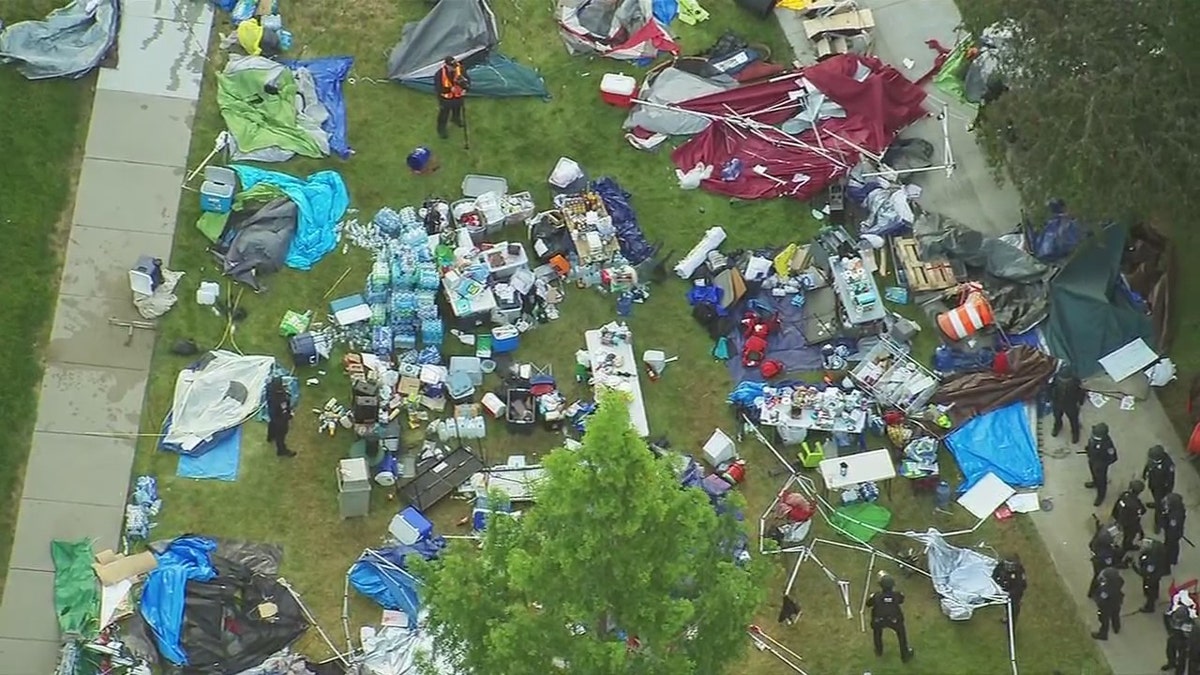
Police dismantled an anti-Israel encampment at Wayne State University in Detroit. (FOX2 Detroit WJBK)
The stakes of such interventions are high. Last week, Columbia University President Minouche Shafik resigned amid accusations that she allowed anti-Israel agitators to run amok at the school without intervention or discipline.
Some of the new rules imposed by campuses include banning encampments, allowing protests only in designated spaces, restricting access to campus for those without proper university identification, requiring protesters to register in advance, setting limitations on amplified sound usage during class hours, requiring that signs be removed within two weeks of a protest, and limiting the duration of demonstrations.
In a statement issued last week, the American Association of University Professors condemned "overly restrictive policies" put in place, saying that they would discourage free expression.
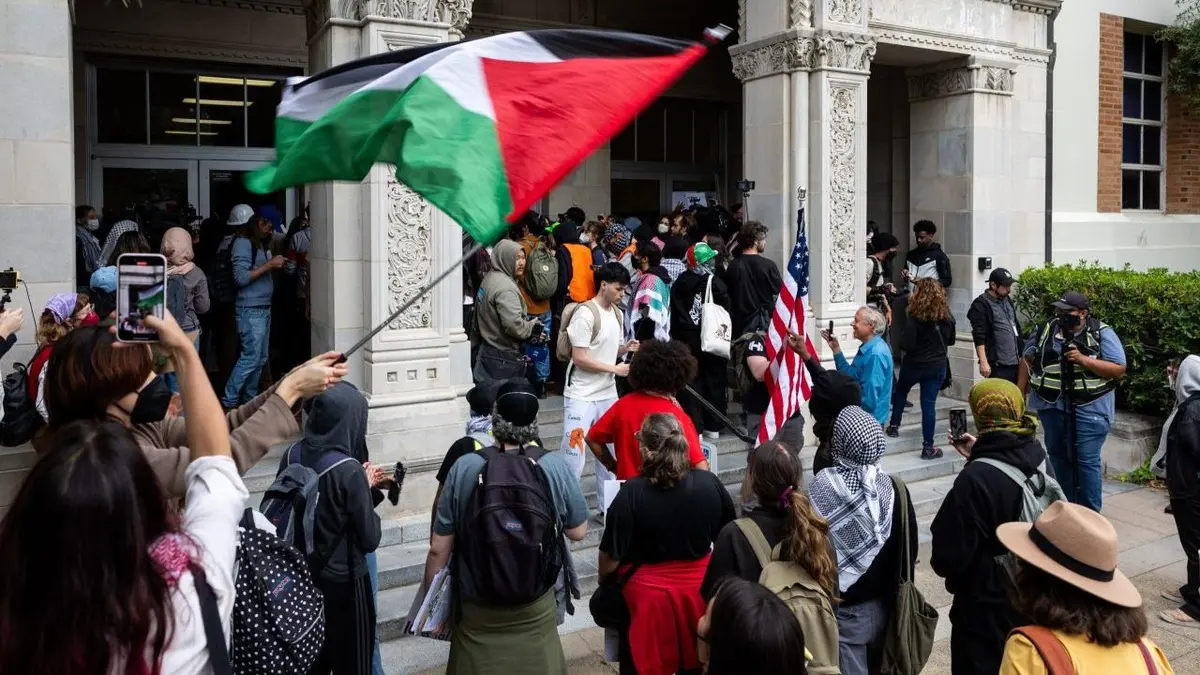
An anti-Israel protester holds a Palestinian flag during a demonstration at UCLA on May 23, 2024. (Qian Weizhong/VCG via Getty Images)
"Our colleges and universities should encourage, not suppress, open and vigorous dialogue and debate even on the most deeply held beliefs," the statement read, adding that many policies were imposed without faculty input.
Risa Liberwitz, a professor of labor and employment at Cornell, told NBC that "we are seeing a resurgence of repression on campuses that we haven’t seen since the late 1960s."
But Jacobson said that in most places "the additional measures are things that are already in place."
"A lot of these things that people are complaining about were already implicit in the rules already but [had not been stated] explicitly," he said.
HAMAS FLAG SPOTTED AT ANTI-ISRAEL RALLY NEAR DNC AS CHICAGO BRACES FOR POSSIBLE UNREST
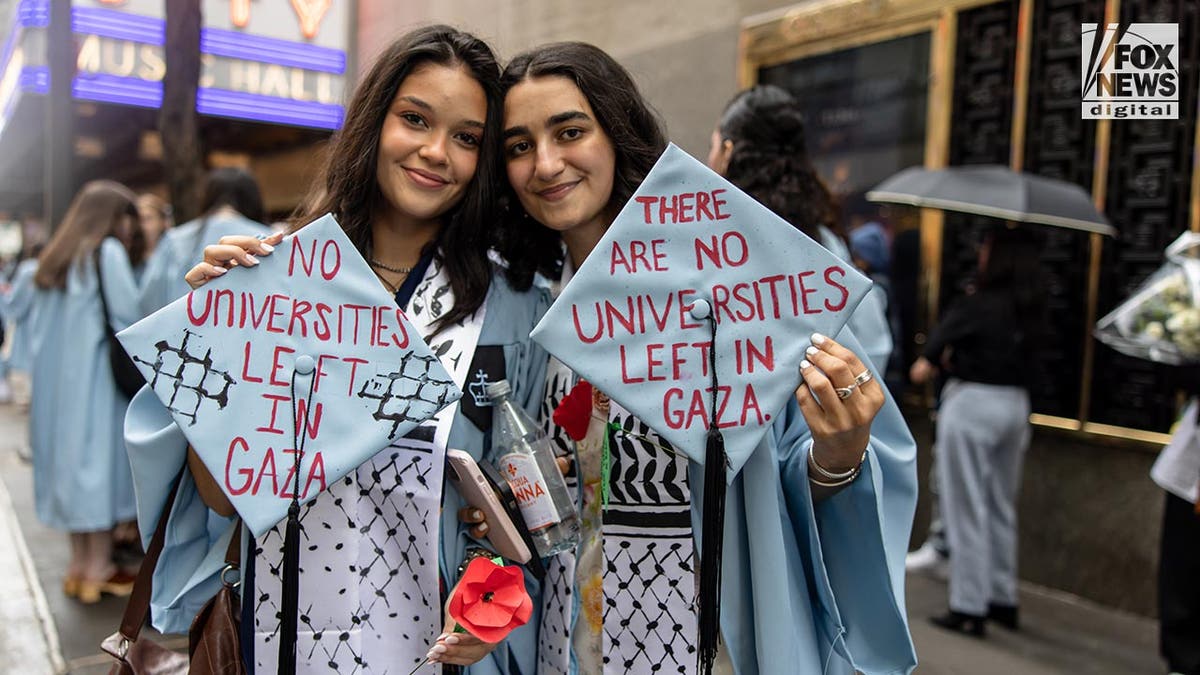
Barnard College, Columbia University, graduates display anti-Israel slogans prior to the commencement ceremony at Radio City Music Hall in New York City on May 15, 2024. (Daniel McKnight for Fox News Digital)
For example, he said Cornell already had a policy against camping on campus grounds; although encampments have now been banned, they technically were already against the university's rules.
The University of Pennsylvania has outlined new "temporary guidelines" for student protests, which include a ban on encampments, overnight demonstrations, and bullhorn and speaker usage after 5 p.m. on class days. The university said it remains committed to lawful assembly and freedom of speech.
Indiana University has banned overnight protests, protests after 11 p.m., under its "expressive activities policy" that took effect on Aug. 1. Any "camping" is prohibited on campus, and signs displayed on university property need prior approval. At the University of South Florida, canopies, banners, signs and amplifiers need approval, and no protest "activity" is allowed after 5 p.m. or at all during finals in the last two weeks of the semester.
"A lot of these things are trying to deal with the abuses that took place," Jacobson told Fox News Digital.
"A lot of what is going on is not actually free expression, it’s intimidation. When you use a bullhorn inside a building, you’re not doing it to express yourself, you’re doing it to intimidate other people," he said. "People who are complaining about these rules, for the most part, are people who want to intimidate others."
"A lot of what is going on is not actually free expression, it’s intimidation."
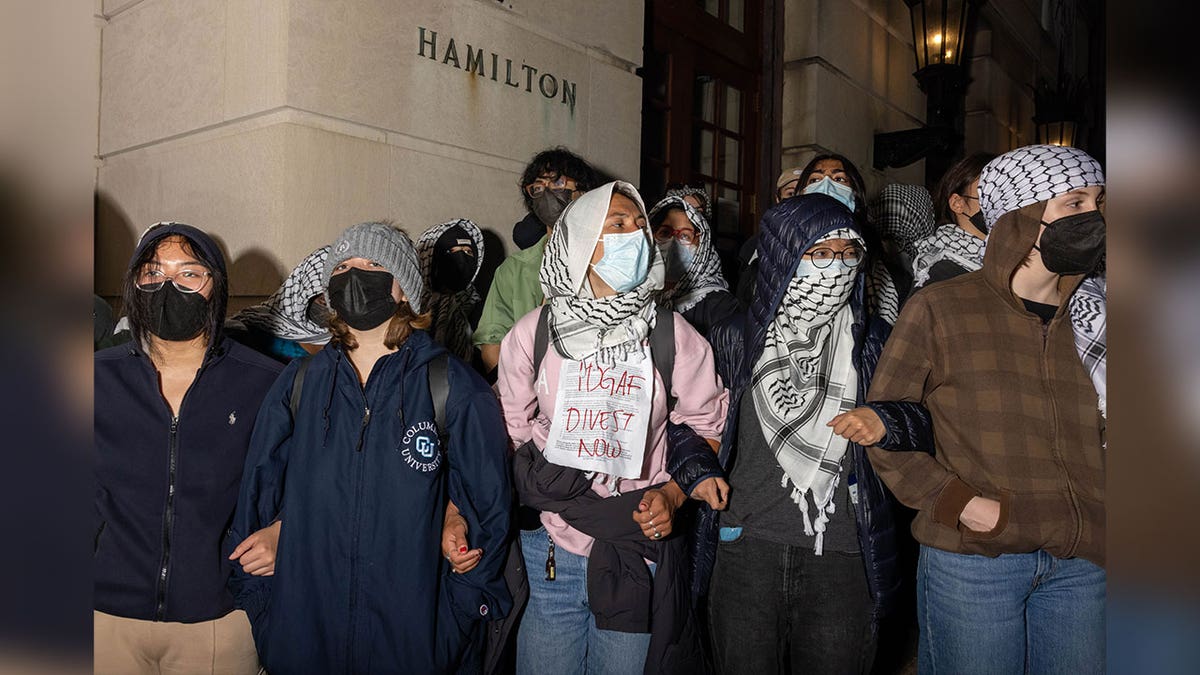
(Alex Kent)
"It’s trying to create a toxic atmosphere on campus for Israel supporters, particularly Jewish Israel supporters," he continued.
Jacobson conceded that universities banning protests after 5 p.m. did seem "a bit harsh."
"But just because the concept of these rules is reasonable doesn't mean each and every one of them are reasonable," he said.
Jacobson said he had "no doubt" that some of these new policies would be challenged, particularly those imposed by public universities.
However, he said that he "would think as long as there are reasonable time, place and manner restrictions, that is consistent with the Constitution, [for example], you can’t have bullhorns in a building, you can’t have encampments that disrupt student flow."
CLICK HERE TO GET THE FOX NEWS APP
Jacobson characterized criticisms of the new rules as "cry-bullying."
"One pattern we see is that there is often a lot of what I would term ‘cry-bullying’. [Anti-Israel protesters] intimidate people, they bully people, they create hostile environments. [But] the second that anyone says, ‘You can’t do that,’ they cry like their rights are being infringed upon," Jacobson said.
"They want an exception to rules that everyone else has to follow. I think that’s what’s driving this: cry-bullies that think they don’t have to live by the rules that other people have to live by," he said.







































